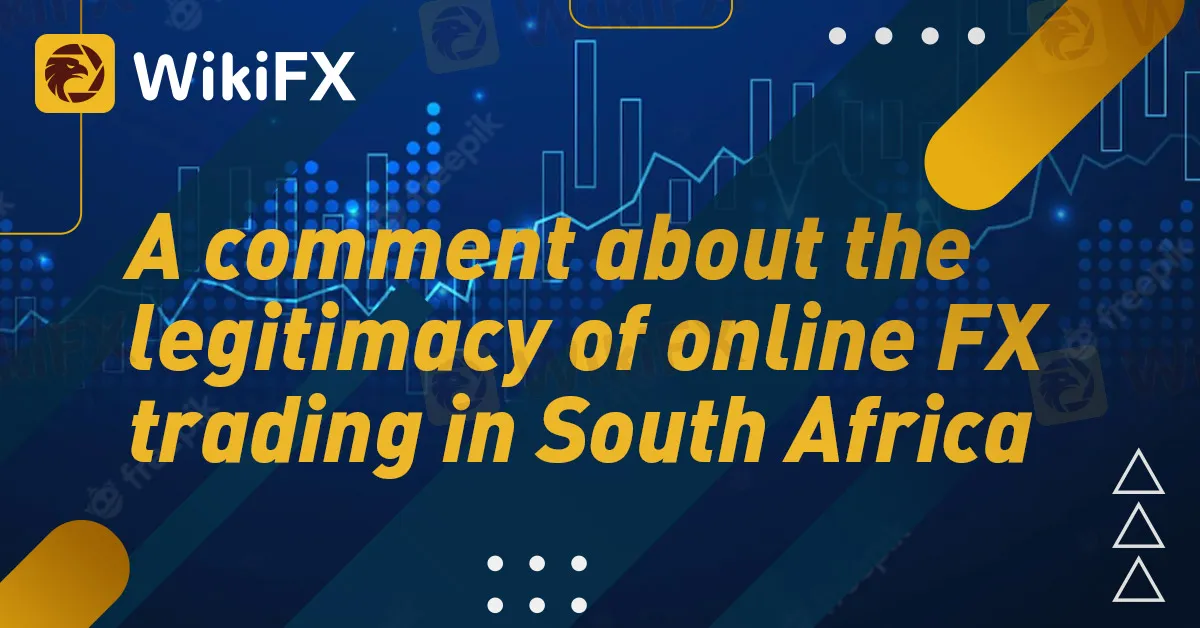简体中文
繁體中文
English
Pусский
日本語
ภาษาไทย
Tiếng Việt
Bahasa Indonesia
Español
हिन्दी
Filippiiniläinen
Français
Deutsch
Português
Türkçe
한국어
العربية
A comment about the legitimacy of online FX trading in South Africa
Abstract:After responding to a parliamentary question on online currency trading, finance minister Tito Mboweni has caused some little controversy and confusion.

After responding to a parliamentary question on online currency trading, finance minister Tito Mboweni has caused some little controversy and confusion.
When Tito Mboweni said that online forex trading is prohibited in South Africa and that people are not permitted to speculate against the rand, it initially appeared as though he was directly contradicting current Financial Sector Conduct Authority (FSCA) laws.
There seems to be some misunderstanding over how online forex trading operates and what is legal and unlawful in South Africa, despite the minister's clarification that illicit forex trading platforms shouldn't be confused with brokers who provide derivative trading.
As the chief operating officer of TradeForexSA, a South African forex trading platform that assesses brokers and offers training to new traders, I was rather taken aback by the minister's remarks: The minister is right to point out that currency derivative speculation is legal in South Africa, but some of his earlier remarks appear to reflect a lack of knowledge of how the sector functions.
But I also want to give credit to the FSCA, which quickly released its own explanation of the comments, clarifying that forex trading online is lawful in South Africa as long as it is done through a licensed broker and involves speculation on foreign exchange derivatives.
The regulator also emphasized that buying foreign currency from businesses or individuals without the required authorization is prohibited.
The confusion appears to be caused by a misunderstanding of what online FX trading is. Contract for difference (CFD) trading is a type of online currency trading. CFDs are financial products whose value is derived from an underlying physical asset, such as the price of a precious metal, equities, or currency pair. CFDs are referred to as derivatives since they solely get their value from the price of an asset. Neither the trader nor the CFD provider acquires any ownership of any physical asset while trading CFDs.
Residents of South Africa are permitted to trade CFDs; CFD brokers are governed by the FSCA and permitted to operate with the appropriate license. No legislation forbids South African citizens from doing business with
Since legitimate forex trading involves several millions of dollars and is the domain of banks and hedge funds, as far as we are aware, there are no illicit brokers offering it in South Africa. In South Africa, all online forex trading involves derivatives. Although the recent closure of JP Markets demonstrates that there are issues with the online forex trading sector, I don't believe that one of them is illicit currency exchange.
I use the recent collapse of JP Markets to emphasize the FSCA's function as an industry regulator. The ODP licence is a brand-new licensing program that the FSCA has unveiled for all online derivative providers in South Africa. The FSCA had an easy victory since JP Markets did not have this new license at the time of the inquiry.
The unexpected fall of JP Markets has added to the stigma surrounding the local currency market, even if it was inevitable given its crimes.
The minister's remarks and the initial query from DA MP Dennis Ryder appear to be in response to these recent occurrences, and they are appreciated. The more public discussion there is about the FX market, the better. The reputational harm caused by their dishonest colleagues must be removed from legitimate and honest forex brokers, and South African citizens must get complete education on the hazards associated with forex trading.
The public, however, would benefit from as little ambiguity as possible on the morality of these matters. DM/BM

Disclaimer:
The views in this article only represent the author's personal views, and do not constitute investment advice on this platform. This platform does not guarantee the accuracy, completeness and timeliness of the information in the article, and will not be liable for any loss caused by the use of or reliance on the information in the article.
Read more

Alleged Concerns with TradeEU.global's Trading Practices
An individual trader has come forward with allegations of an unfavourable experience while using the services of the broker TradeEU.global.

Lured by False Promises: Malaysian Driver Lost RM218K to an Investment Scam
A 49-year-old e-hailing driver in Malaysia fell victim to a fraudulent investment scheme, losing RM218,000 in a matter of weeks. The scheme, which falsely promised returns of 3 to 5 per cent within just three days, left the individual financially devastated.

Italian Regulator Warns Against 5 Websites
The Italian regulator, CONSOB has issued a warning against five websites offering unauthorized financial services. This regulatory action aims to protect the public from fraudulent activities.

Trader Exposes Unethical Practices by STP Trading
A recent allegation against STP Trading has cast doubt on the firm's business practices, highlighting the potential risks faced by retail traders in an increasingly crowded and competitive market.
WikiFX Broker
Latest News
Saxo & Portuguese Bank Partnership
SEC Fines Broker-Dealers $275K for Incomplete SAR Filings
Lured by False Promises: Malaysian Driver Lost RM218K to an Investment Scam
FTX Sets March 2025 Timeline for Creditor Payouts: What It Means for Investors
What is an Economic Calendar? How it works
Italian Regulator Warns Against 5 Websites
SFC Freezes $91M in Client Accounts Amid Fraud Probe
Bybit Launches Gold & FX Treasure Hunt with Real Gold Rewards
Mastercard's 2030 Vision: Biometric-Driven, Tokenized Payments
What Are the Latest Trends and Strategies in Philippine Gold Trading?
Currency Calculator



